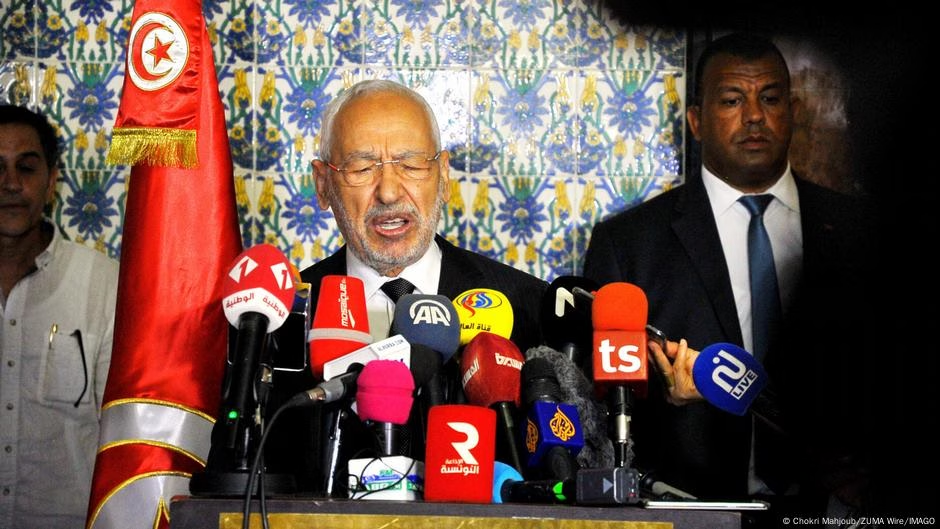On Tuesday, Tunisia sentenced numerous high-ranking politicians and officials, including opposition leader Rached Ghannouchi, to prison. In a mass trial, a court sentenced 21 individuals to terms ranging from 12 to 35 years in prison. Among those convicted, 10 are currently in custody while 11 have fled the country. The charges leveled against them include associations with terrorism, inciting violence, attempts to overthrow the government, and recruiting individuals for terrorist activities both within Tunisia and abroad.
According to Ghannouchi’s defense lawyers, the accusations were based on “false and contradictory testimonies” from a secret, anonymous witness who failed to provide any substantiation for the allegations and later retracted most of them.
Ghannouchi, the leader of the Ennahda party and former parliamentary speaker, was handed a 14-year term and has been imprisoned since 2023. This adds up to a total of 27 years of sentences in separate cases. The 84-year-old Islamist leader has refused to attend court proceedings, arguing that the judicial system is heavily influenced by the government.
Former intelligence chief Kamel Guizani, former Foreign Minister Rafik Abdessalam, and Mouadh Ghannouchi, son of Rached Ghannouchi, were each sentenced to 35 years in absentia. Other notable figures to receive the same sentence include Nadia Akacha, the former chief of staff to President Kais Saied.
Since Saied’s takeover six years ago, which included dissolving the elected parliament in 2021, there has been a noticeable increase in the crackdown on opposition voices. In April of this year, 66 politicians, business owners, and lawyers were sentenced to up to 66 years of imprisonment. Activists and opposition figures accuse Saied of undermining Tunisia’s democracy, which emerged from the 2011 Arab Spring uprisings, by using the judiciary and security forces to achieve his political objectives. Saied contends that these measures are essential to combat corruption among the elite.
Edited by:
Saim Dušan Inayatullah








